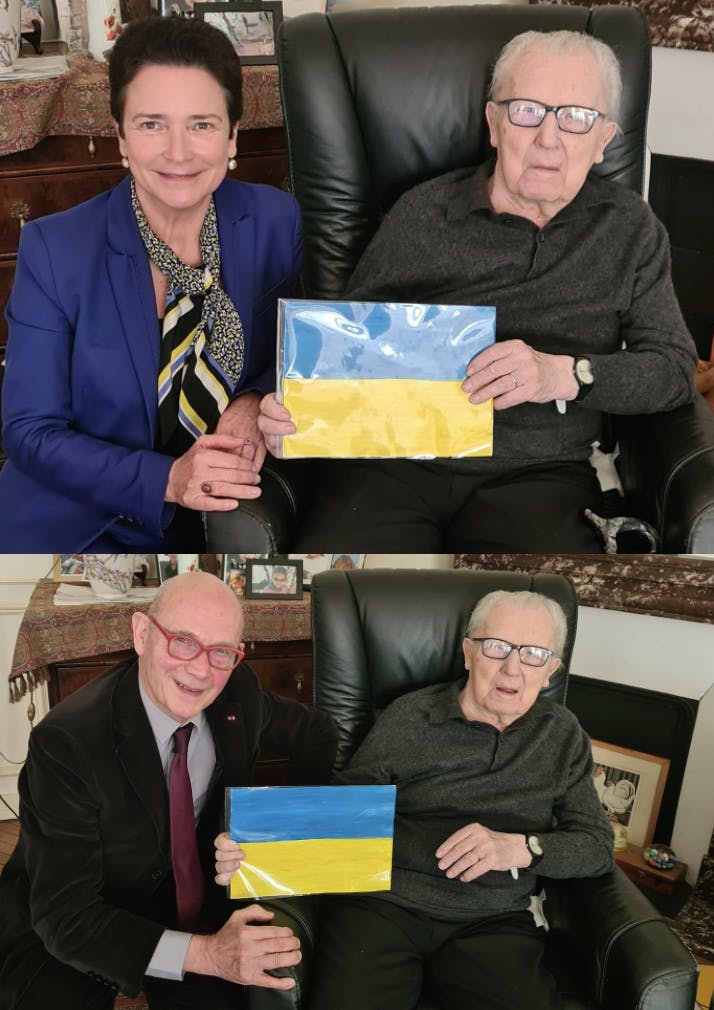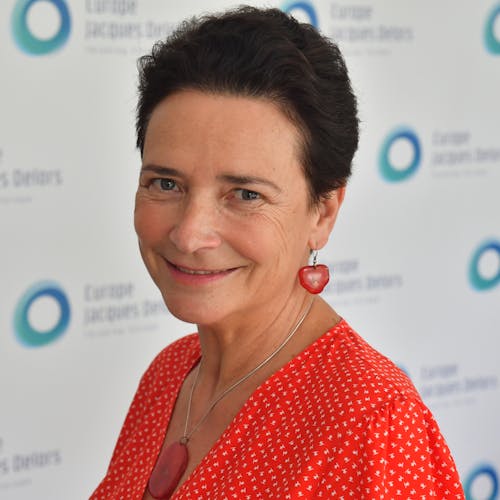War in Ukraine: Europe on the front line
So far, Europe’s reaction is unprecedented. Our ability to unite and our determination to act together to sanction Russia and support Ukraine, notably by financing its armaments from a common fund, are new and important steps towards integration following the ones provoked by the financial crisis in 2012 and the COVID crisis in 2020. The challenge now is to review our energy policy. We must radically accelerate our strategy of decarbonization and sever our Russian gas and oil dependencies. It won't be easy. Russian gas represents on average 40% of EU gas consumption, sometimes even reaching 100%, as is the case in Latvia. Nevertheless, we must stop these imports which, together with Russian oil, cost us 700 million euros a day and finance the Russian war effort.
Lowering our energy consumption will play a significant role. By reducing our indoor temperatures by one degree, we save the equivalent of 12 to 15 LNG carriers. Limiting our speed on the motorway to 110 km/h, embracing eco-driving, and reducing journeys of less than 2 km by car can already account for a big chunk of our efforts to cut Russian oil imports. But that won't be enough. We must invest in the thermal insulation of buildings, with priority being given to those heated by gas and fuel oil, as well as accelerate the transition to renewable energies, starting with the installation of heat pumps, solar panels and water heaters. With current gas and oil prices, insulation renovations or heat pump installations are already profitable. According to the European Commission, the measures provided for in the “REPowerEU plan” presented yesterday “can gradually reduce our use of fossil fuels by at least 155 billion cubic metres, i.e. the volume imported from Russia in 2021”. As the plan appears to be mostly targeting gas and is insufficient to drastically reduce the amounts paid to Russia, its level of ambition is questionable. It will be discussed at the summit in Versailles today and tomorrow.
On top of inflation, these measures will bear a high cost to consumers; an acceleration of the implementation of the Resilience and Recovery Plan (#NextGenEU) will be necessary for its success. However, this may still be insufficient to finance a new joint effort to demonstrate European solidarity towards regions and populations most affected, speed up the greening of our economies, and increase our strategic autonomy. EU leaders may be confronted with the necessity to invent a new joint effort, a new version of #NextGenEU.
The necessary acceleration of the Green Deal comes in a context where, successively, the One Ocean Summit in Brest and the IPCC report on adaptation to climate change remind us how vital it is to move quickly to protect our planet. It is also this challenge that will have to be tackled by the new negotiations in New York on the protection of the high seas, similar to those just launched in Nairobi for the conclusion of an ambitious treaty on plastics.
While the horrors of war, once again casting a shadow on the European continent, remind us that our first duty is to protect our people and our democracies, we should not forget that we also need to protect all that we have in common: our planet and our ocean. All of our forces will be needed to achieve this agenda for peace.
Geneviève Pons

A brutal return to the chilling Europe of the early 20th century has come as a huge shock for all of us. A dictator, on our European continent, endeavours to seize a neighbouring sovereign territory, provoking disbelief and terror.


